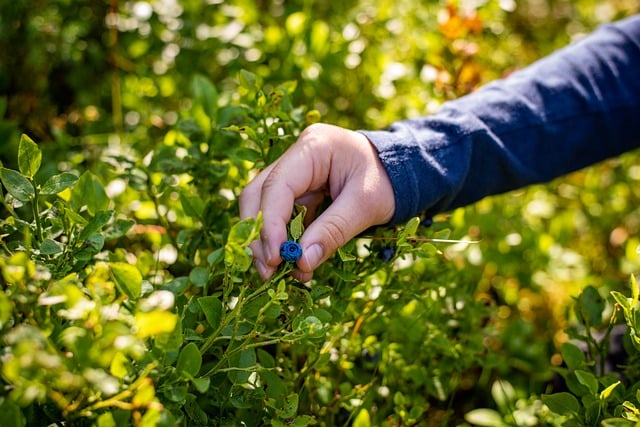Most commercial fruit and vegetable growers must comply with the Food Safety Modernization Act (FSMA) Produce Safety Rule (PSR), Rhode Island Good Agricultural Practices (RIGAP), or other third-party programs to minimize food-borne illness risks. All workers—whether paid, seasonal, volunteers, or family members—handling produce or food contact surfaces must be properly trained to meet these standards.
Farms with regular staff or volunteers must ensure all personnel are trained in personal hygiene and contamination prevention to comply with PSR and maintain food safety. Even sole operators benefit from understanding how contamination spreads and implementing preventive measures to bring produce to market safely.
This webpage, with support from the Rhode Island Department of Environmental Management (RIDEM), provides resources to help growers train their workforce in the basics of on-farm food safety for everyone handling produce or coming into contact with food surfaces.
Steps to Satisfy the Worker Training Requirement for PSR & RIGAP
- Identify a Food Safety Supervisor: Designate one or more supervisors responsible for food safety. At least one supervisor must complete the standardized Produce Safety Rule and/or RI GAP training (only required once).
- Train Workers: Supervisors must train all workers and volunteers at the time of hiring, at least annually, and ensure the training is easy to understand. Click here for a FDA fact sheet on required training information and/or watch this 4 minute video
- Record Keeping: Every worker on the farm, paid or not, should have a record of their completed training. Doing so ensures that staff is proficient in food safety principles and can even make the work environment more efficient. For a worker training record template, click here.

Train in the Right Language
Ensure that all training is conducted in the workers’ native language, including any written materials or signs. Free translation apps can be helpful, and farms may also have access to language-free signs—contact sejal@uri.edu to find out more.
Explore Translated resources
Make Training Practical and Engaging
Help workers understand why rules are important by explaining the risks of foodborne illness and how bacteria can thrive. When workers grasp the reasons behind procedures, they’re more likely to follow them and identify potential hazards on their own.
Explore resources
Diversify Training Methods
Use various formats like verbal instructions, posters, group activities, and videos to cater to different learning styles. Incorporate hands-on practice to ensure workers can apply what they’ve learned. Our curated playlist contains videos in many languages.
Explore Videos
Provide On-Going Training
Offer refresher sessions when issues arise, new equipment is introduced, or procedures change. Continuous training ensures that workers remain updated and proficient in their tasks. In addition, consider sending multiple people from your farm to Produce Safety Training.
Produce Safety Training
Educate Visitors that Come to Your Farm
Provide a safe and enjoyable experience for farm visitors by making sure they are aware of your food safety policies. Key measures include clear signage, accessible handwashing stations, designated visitor areas, no-pet policies, and proper sanitation supplies. Train staff to monitor visitor activities and maintain records to minimize contamination risks and safeguard your produce.
Explore more tips